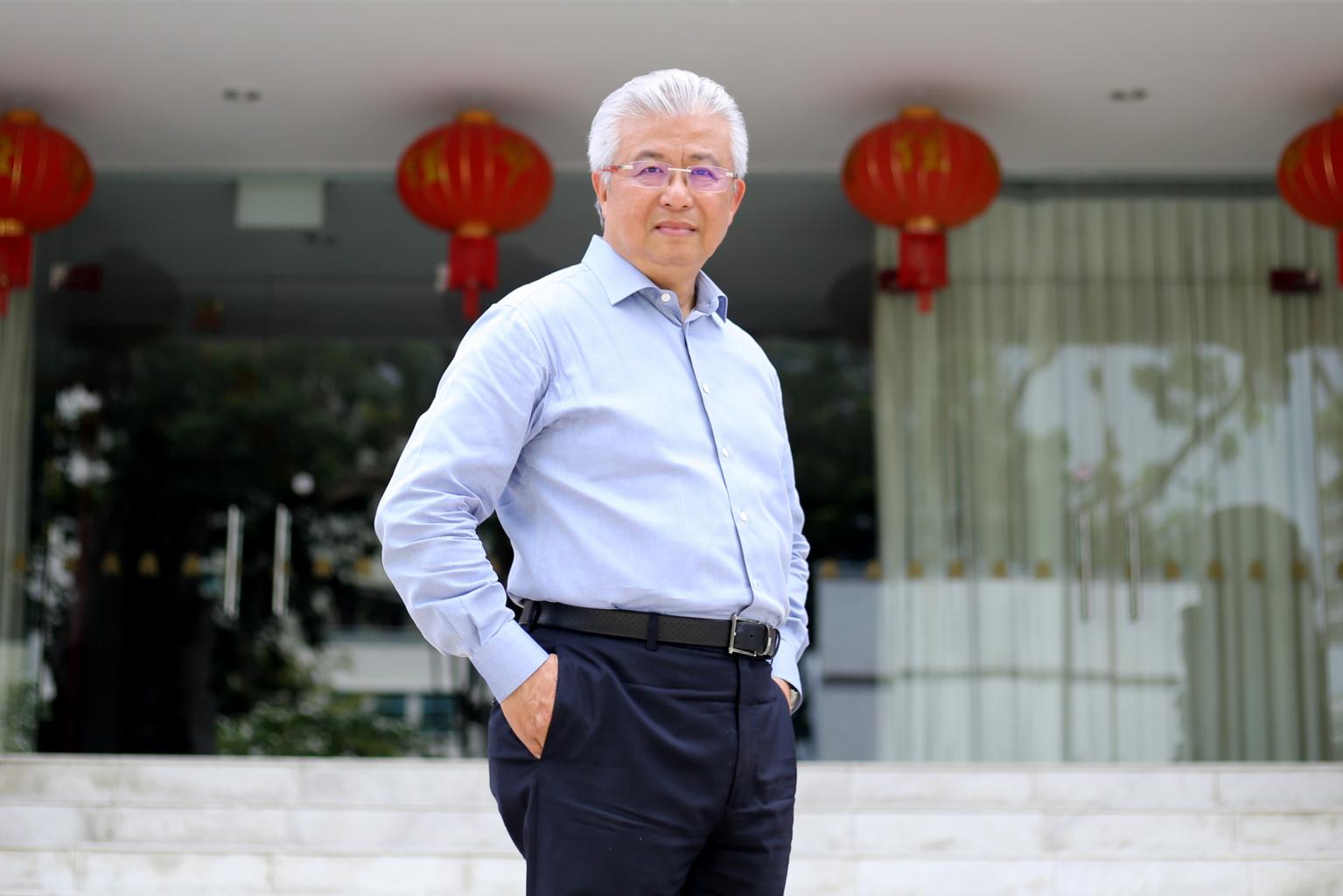Chinese clan associations must resist foreign influence, says new federation president
Sign up now: Get ST's newsletters delivered to your inbox

Singapore Federation of Chinese Clan Associations president Thomas Chua said clan associations must do their part in tackling foreign influence.
PHOTO: LIANHE ZAOBAO FILE
Justin Ong
Follow topic:
SINGAPORE - Growing international tensions amid the Covid-19 pandemic have laid bare Singapore's susceptibility to foreign influence, heightening the risks of social polarisation.
Against this backdrop, Chinese clan associations here must do their part as a core member of society, said the new president of the apex body of these organisations on Saturday (Oct 16).
Mr Thomas Chua, the fourth president of the Singapore Federation of Chinese Clan Associations (SFCCA), added: "We must shoulder responsibility, stand firm, exert a positive influence, unite the different ethnic groups, build up social cohesion, as well as promote positive exchange and interaction amongst citizens, so as to conquer the challenges that stand in our way."
Mr Thomas Chua, the fourth president of the Singapore Federation of Chinese Clan Associations (SFCCA), added: "We must shoulder responsibility, stand firm, exert a positive influence, unite the different ethnic groups, build up social cohesion, as well as promote positive exchange and interaction amongst citizens, so as to conquer the challenges that stand in our way."
Mr Chua, a former Nominated MP, was delivering an acceptance speech in Mandarin after being sworn in as the fourth president of the apex body of Chinese clan associations here.
The event was held at the SFCCA's premises in Toa Payoh.
One key area of work for Mr Chua and his new council will be in strengthening cooperation with other ethnic groups.
He said the SFCCA and the National Integration Council under the Ministry of Culture, Community and Youth were mobilising ethnic volunteer organisations to come together to help the needy.
The hope, said Mr Chua, is that "this will develop into a mutual understanding built on common values".
"Singapore's multiethnic and multicultural identity has helped to shape a unique societal culture, but equally has the potential to divide us as well," he noted.
Deputy Prime Minister Heng Swee Keat, who also gave remarks in Mandarin at the event, said Singapore's racial harmony was not easy to come by.
Every generation of Singaporeans must put in the effort to continue preserving this state of affairs, even as they pass on their own unique cultural traditions, he said.
He added that he was happy to see the SFCCA promote this through activities that also reflect and strengthen Singapore's multicultural identity.
In September, the Institute for Strategic Research at France's Military College, or Irsem, released a report on how Singapore's multiethnic society made it vulnerable to China's influence - though at the same time, the presence of a single, national Singaporean identity also made the city-state resilient to such threats.
The report also pointed to the role of clan associations here in preserving Chinese identity and kinship, something also previously flagged by other think-tanks as a means of aligning locals with China's expanding interests.
On Saturday, Mr Chua said he would also work on accelerating the SFCCA's transformation by attracting more professionals and expanding its online reach, among other moves.
Another SFCCA responsibility would be the deepening of exchanges and collaborations with member associations.
"This will enhance our status not only as a bastion of Chinese culture, but also as a meeting point for philanthropy and social causes, thereby attracting younger members who are likewise public-spirited and keen to give back to society," he added.
Outgoing president Tan Aik Hock also spoke of the federation's efforts to appeal to the young.
He described how, early in the pandemic, SFCCA banded together with member associations and community partners to organise projects to encourage front-line workers and improve the lot of those disadvantaged by the situation.
The federation, which was established in 1985, also started a bursary programme with the Yellow Ribbon Fund to provide $120,000 annually for youth offenders who wish to pursue tertiary education.
The bursary has supported 11 inmates as at April this year.
Mr Heng, too, said it was important for the SFCCA to attract younger members to inject vitality.
Aside from organising sporting events, film competitions and internships, the federation also awards scholarships for recipients to study in China, cultivating bilingual and bicultural talents.
Mr Heng added: "I hope that when these young people return, they will actively participate in SFCCA's activities and play a more important role in leading the federation forward."

